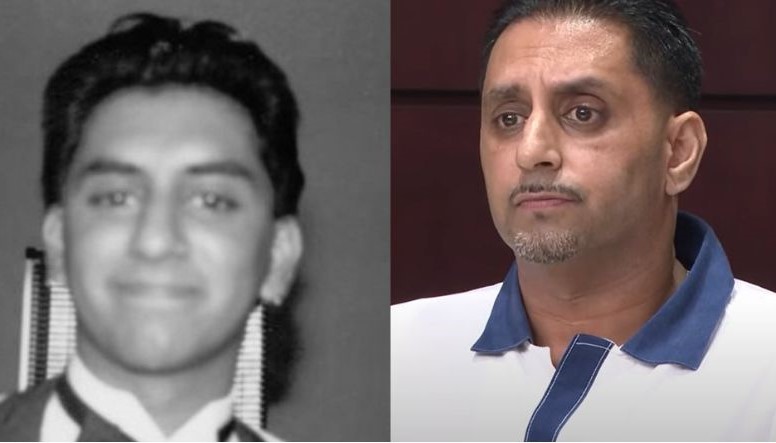BY VEENA RAO
Atlanta, GA, April 16, 2024: Sandeep “Sonny” Bharadia, an Indian American man, finds a glimmer of hope after over two decades behind bars for a crime he, according to new DNA evidence, did not commit. A recent ruling by Gwinnett County Superior Court Judge Laura Tate has set the stage for a potential retrial, shedding light on serious flaws in Bharadia’s initial conviction.
In 2001, a woman walked in on a man who was in the process of burglarizing her home in Thunderbolt, Georgia, according to the case details on the Georgia Innocence Project (GIP) website. The man sexually assaulted the woman at knife-point and then fled with some of her belongings. Before the woman was assaulted, she noticed that the man was wearing blue and white batting gloves.
Sonny Bharadia was in Lithonia, over 250 miles away from Thunderbolt, working on a friend’s car during the time the victim was attacked.
Just a few days after the assault occurred, Sonny called police to report that Sterling Flint, an acquaintance of Sonny’s, had stolen Sonny’s car and was also in possession of a stolen motorcycle. In response, Sterling Flint threatened to kill Sonny, which Sonny also reported to the police.
When police went to investigate Sterling, they discovered the sexual assault victim’s stolen property along with a pair of blue and white batting gloves. When the victim was shown a photo lineup, she identified Sterling Flint as her possible attacker.
When police directly connected Sterling to the sexual assault, Sterling tried to deny his involvement by claiming that the stolen items found among his personal possessions actually belonged to Sonny Bharadia. After Sterling attempted to shift the blame to Sonny, police then gave the victim a second photo lineup that did not include Sterling and, this time, she identified Sonny Bharadia as her possible attacker. Sterling, a Black man, and Sonny, an Indian man, look nothing alike.
The DA charged both Sonny and Sterling in this crime. Sterling pleaded guilty to receiving the victim’s stolen property and, in exchange for not being prosecuted for a sex crime, testified against Sonny Bharadia. No physical evidence tied Sonny to the crime. Sterling’s incentivized testimony, along with the victim’s revised eyewitness identification, were the only evidence supporting the prosecution’s case against Sonny, according to the Georgia Innocence Project.
On June 27th, 2003, Sonny Bharadia was convicted and sentenced to life in prison without the possibility of parole.
At the time of trial, the batting gloves worn by the attacker were not tested for DNA evidence because the technology to do so did not yet exist. However, several years later, when Georgia Innocence Project took on Sonny’s case, DNA testing technology had advanced to the point that “touch” DNA testing could be performed on the gloves. Using DNA from skin cells left on the gloves, the Georgia Bureau of Investigation was able to extract a DNA profile and compare it with a sample obtained from Sonny—the DNA didn’t match. It did, however, match someone else: Sterling Flint.
The Georgia Innocence Project brought this evidence to the attention of the district attorney, but they declined to take action. The case was litigated all the way up to the Georgia Supreme Court, which ultimately decided against Sonny, partially because the gloves could have been tested at the time of Sonny’s trial–even though the technology did not yet exist in 2003.
The district attorney’s office initially rebuffed GIP’s evidence, and subsequent appeals, including a petition to the Georgia Supreme Court, faced setbacks. Despite these setbacks, however, the GIP filed an amended habeas corpus petition in December 2022.
Judge Tate’s recent ruling marks a turning point. Recognizing violations of Bharadia’s constitutional rights and the compelling DNA evidence implicating Flint, Tate granted Bharadia’s habeas corpus petition, opening the door to a potential retrial.
The Attorney General’s office has 30 days to decide whether to appeal the judge’s ruling.
If they do not, the order becomes final and the case will be returned for a new trial in Chatham County where Bharadia was originally convicted, says Fox 5. For Bharadia, this ruling offers a glimmer of hope in a decades-long struggle for exoneration and vindication.





